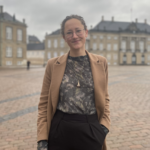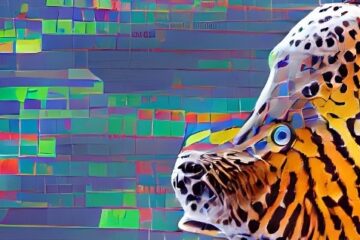The main challenge we are facing is not the climate crisis, but the climate governance crisis. The governance crisis amalgamates across both regulation of human-created crisis and new technologies which are increasingly becoming available to us. We find ourselves stuck at questions around: Who should get to decide how AI is aligned? Where will we decide on gene modifications? Who should get to decide the trade-offs between economic opportunity and environmental protections – when they are in conflict?
At the core of these questions is who and where will these be decided. This will most often bring up suggestions such as: UN committees, national democratic governments, sometimes even private companies. However, since these challenges and opportunities span across borders and far out into the future generations we need to expand the involvement of citizens in the decisions process and try to answer: How do we build trust and compromise without knowing people in the system we are building trust?
Looking To Taiwan for Inspiration
Scaling Listening, Incentivising Compromise, and Valuing Contributions
Taiwan has created a new online space which opposite to most social media planforms rewards compromise, listening and constructure contribution. The platform called Polis generates maps showing knots of agreement and dissent. This gives visibility to those finding consensus whose contributions then get pushed ahead to policymakers. Similar, to internet native DAOs this structure does not have a central authority, but rather participators can vote and generate value through participation and suggesting compromises. While Taiwan is one country with one regulatory body, this framework of idea generation and pre-policy consultation is giving policy makers visibility into areas of compromise and bringing up new solutions. Leveraging quadratic voting, which was first used on the Ethereum blockchain, incentivizes people to spread out their votes to get a larger say. Again, this reduces opinion trenches.
Building DAOs into the Existing International Governance Framework
Creating a Participatory Structure at the Idea Generation State for COP?
A Climate DAO could play a similar role as an input to COP negotiations – engaging not just post-policy suggestions but in the idea generation stage. Leveraging a DAO structure, people would be rewarded for generating ideas and compromises that reach across multiple groups. This could be tied to people’s background or nationality but could also be completely anonymous where the credibility of a position is based on the engagement across the forum and where clustering (like Taiwan’s Polis) is done based on people whom you have agreed with prior rather than demographic information.
As the technological challenges we face expand we need to use technology to innovate our participation processes and expand our ideas of what governance entails.
Leise Sandeman is passionate about the intersection of long-term future of humanity, ex-risk, technology, and climate change. She lived in Indonesia scaling an NGO working in recycling, building up waste management systems. Prior to studying at Harvard Kennedy School, she worked as a consultant at McKinsey & Co advising companies on climate risk strategy and new business launches.



0 Comments